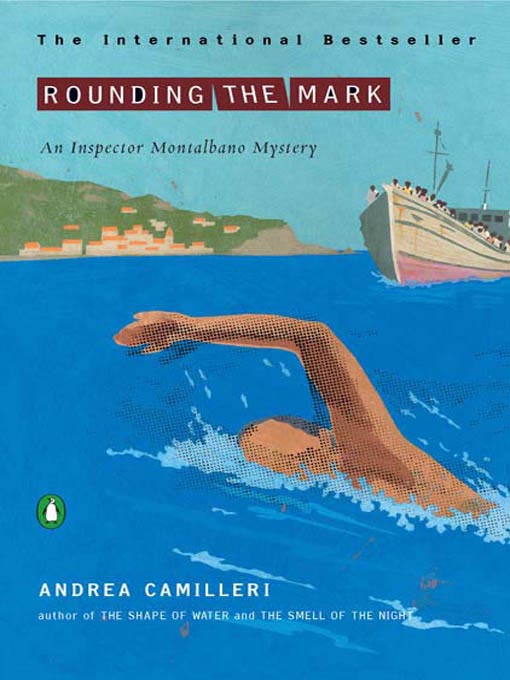
Rounding the Mark
Inspector Montalbano Series, Book 7
کتاب های مرتبط
- اطلاعات
- نقد و بررسی
- دیدگاه کاربران
نقد و بررسی

June 5, 2006
Camilleri's gripping seventh Inspector Montalbano mystery (after 2005's The Smell of the Night
) successfully integrates serious political themes with a hero reminiscent of Colin Dexter's beloved Inspector Morse. Frustrated by his department's repressive handling of security for the G8 summit in Genoa, Montalbano seriously considers resigning. His attempt to unwind with a casual swim along the Sicilian seashore fails when he discovers a corpse in the water. The inspector's pursuit of the cause of death intersects with another mystery—the inquiry into a hit-and-run that claimed the life of a young boy who may have been victimized by human traffickers. When Montalbano realizes that he may have inadvertently aided the boy's victimizers, his internal turmoil intensifies. Despite Camilleri's hard look at modern-day slavery and child abuse, he maintains Montalbano's gallows humor, making this far from a run-of-the-mill police procedural.

August 15, 2006
In his seventh outing (after "The Smell of Night"), Sicilian Inspector Salvo Montalbano is on the verge of resigning, beset as he is by life -police corrupted by politics, his favorite trattoria's chef resigning -and feeling that his investigative skills are dulling. Then two deaths presumed accidental and unrelated catch more than just his attention -he literally bumps into one body while swimming and feels a responsibility for the other -and Montalbano's instincts sharpen. Ingrid, an old friend whose marriage is in distress, supplies pivotal information (while provoking the jealousy of Montalbano's long-distance lover, Livia), and a journalist provides background on the illegal trafficking of children. Montalbano's lone-ranger tactics, undertaken despite the occasional pains of his aging body, infuriate his engaging staff, but the inspector is clearly back in top form. And he's also found a trattoria whose chef's cooking leaves him blissful, a discovery no less significant than Odysseus finding his long-lost Ithaca. A worthy addition to a smart, entertaining series." - Michele Leber, Arlington, VA"
Copyright 2006 Library Journal, LLC Used with permission.

Starred review from August 1, 2006
We noted in our review of " The Smell of the Night" (2005) that Camilleri's Salvo Montalbano series was becoming considerably darker, with the Sicilian inspector fighting a losing battle against the melancholy that weighs down so many overburdened European cops, from Henning Mankell's Kurt Wallander in Sweden to Michael Dibdin's Aurelio Zen in Italy. Pervasive corruption has much to do with Montalbano's growing sense of powerlessness, but, in his seventh adventure, the shenanigans of his superiors and the politicians behind them are coupled with the evil underside of the opening of Europe's borders: the buying and selling of immigrant children (to be used either as slave labor, toys for pedophiles, or the source of illegal organ transplants). Montalbano unwittingly abets one such trafficker in human flesh and spends the rest of the novel struggling to set matters right. But setting anything right in this absurdly wrong world is something of an exercise in futility, and Montalbano alternates between despair and steely resolve. Unlike other authors who dramatize both the ugly racism and unfathomable evil that too often accompany an immigrant's journey, Camilleri masterfully mixes tragedy and comedy by showing us Montalbano's laughably human foibles and excesses, from his continuing hunger for a good meal and his bumbling efforts to sustain a romantic relationship through his compassionate if often misguided attempts to deal with his subordinates. Ordinary life goes on, even in the face of extraordinary horror. (Reprinted with permission of Booklist, copyright 2006, American Library Association.)

























دیدگاه کاربران